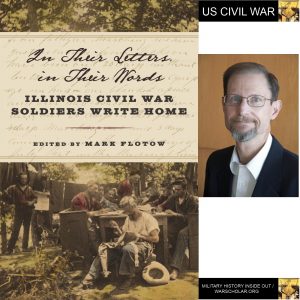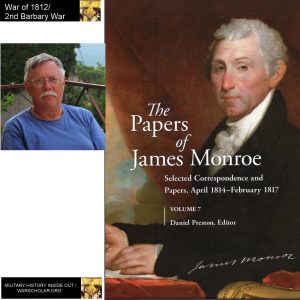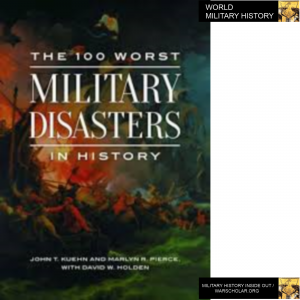 Check out the book here
Check out the book here
http://siupress.siu.edu/books/978-0-8093-3763-7
Illustrations of the US Civil War from above offer wide swathes of blue and gray crashing together. But move your eye closer and you’ll see the details among them. The men of the various states of the Union and the Confederacy each individually doing their part. Among them you may see the soldiers of Illinois.
Mark Flotow wanted to know more about these Illinois men who shed their blood for the Union. He pored through their letters and discovered feelings of happiness, grief, boredom, ego, shame, fear and courage. Much the same as one might find among any soldier in any century but these are the stories of Illinois, with their own philosophies and feelings towards war. But what they share with readers not only teaches us about the war or soldiers but about Illinois and the experience of that state’s citizens.
I was able to interview Mark Flotow about his book In Their Letters, in Their Words: Illinois Civil War Soldiers Write Home and learn more about this fascinating topic.
How did you become interested in studying and writing on the subject of your book?
In 2013, I sought a book like this one, but without success. At that time, I was writing poems to commemorate the sesquicentennial of the war, and scoured Illinois soldiers’ personal letters to understand the mindsets, speech, and everyday life of those who had lived (and shaped) the Civil War era. I wanted to know what was important in their world, and how soldiering and the war affected their perceptions and opinions.
So, I started from scratch and simply read soldiers’ original letters, through their ink on 150-year-old paper. Those became my portals into their private pasts.
I was fascinated by what I found, and I began sharing my readings with a select group of friends and colleagues, who mostly were neither historians nor those who had an interest in the Civil War era. I ended up writing forty-six essays, one each week, and sharing them with my far-flung group through email. Others in the group became fascinated, too. Those essays ended up being the seeds of the current book. In essence, I ended up writing the book I originally had sought in 2013.
What aspect of this subject does your book focus on?
It is the soldiers on whom the book focuses and what they wrote regarding the war, politics, the military, the South, combat, and much more, all through their personal letters. The book is arranged topically, but secondarily it also goes through the war era and its evolution relative to those who experienced it.
If you enjoy reading about the Civil War, you will relish the soldiers’ intimate details of daily living and military experiences, as well as their broad opinions of the nature of the war, slavery, President Lincoln’s policies, state and national politics, and other subjects. In fact, there are few topics Illinois soldiers did not write about. It is as if each letter writer was asked “what is on your mind today, soldier, and what do you want to share about that with your family and friends at home?” Their stories and insights are refreshingly honest and often straight from the heart. And Civil War soldiers’ letters were not censored by the military (with prisoner-of-war mail being an exception).
If you have family, friends, or a significant other who are not Civil War enthusiasts, this book also is especially for them. The focus is not on the war per se, but how and why ordinary people responded in a variety of ways to extraordinary circumstances. It is about citizen soldiers’ lives during wartime. In essence, the book focuses much more on personal and social history than military and political history. However, by reading the soldiers’ experiences shared in their letters, the reader learns about the circumstances and history of the Civil War as a natural byproduct. I have included a concise timeline in an appendix that also serves as an outline of the era’s events during the four years of the Civil War.
What are the major themes of this book?
The book is arranged thematically, and not strictly by chronology of the war nor by individual soldiers’ letters. In fact, there are only about two or three complete letters featured in the book. All the letter quotations are presented to illustrate or highlight soldiers’ thoughts and experiences. Listing the chapter titles is a good way to illustrate the thematic concept.
- A Lifeline of Letters; 2. Illinois Citizens Become Soldiers; 3. Camp Life and Bonding with the Boys; 4. Soldiering; 5. Managing Affairs from Afar; 6. Seeing the Elephant; 7. Southern Culture through Northern Eyes; 8. Officers, Generals, and “Old Abe”; 9. Debility and Diseases; 10. Writing the Indescribable as Prisoners of War; and 11. Soldiers No More.
What resource materials did you use for your research?
I ultimately chose 165 collections only from the Abraham Lincoln Presidential Library in Springfield, which covered Illinois geography, had good provenance, were very often the original items, and were well organized. I selected the soldiers (and sailors) from various branches of the military, from the enlisted and commissioned ranks, originating from sixty-five Illinois counties, who had participated in a wide array of military campaigns, and who represented the gamut of social experiences and personal outcomes. I used quotations gleaned from their letters, adding context and background, in conveying details and stories of soldering during the war.
How many collections of letters were there to choose from? Were there some collections that didn’t make it that you might like to have included?
For example, the Abraham Lincoln Presidential Library has over a thousand Civil War era collections, many of them containing personal letters and several with over a hundred letters each. I did not attempt to read all of the collections, and many I did read do not have representation in the book. However, I gradually am adding both new letter quotations and fuller or extended quotation transcriptions on the “Addenda and Amplifications” page of the book website. I had that in mind almost from the beginning of the writing process. In this way, the book becomes more of a living document.
What part of the research process was most enjoyable for you?
Reading this book is – literally – reading other people’s mail that was never intended for anyone in the twenty-first century to see. There is a certain unguarded, honest appeal to that.
What did you discover in your research that most surprised you?
I had no real “a-ha” moments during my research, at least from how I approached the material. I used an ethnographic research perspective that focused on inductive construction of period facts through personal letters, where the informants were soldiers experiencing the military subculture. I essentially started with myself as a tabula rasa (as much as that is possible) and thus entered the project with few biases or expectations. The approach is similar to a cultural anthropologist doing an ethnography in a foreign land. If indeed “history is a foreign country,” then I was close to taking that literally.
Rather, I gradually came to appreciate that the soldiers were poets, in their own ways: expressive, passionate, and had something to say, sometimes as if it was their last words.
Was there anything you discovered that moved you?
Thinking back, I suppose there were two Illinois soldiers whose writing eloquence especially appealed to me. One was Captain/Major D. Woodman Norton, who was trying mightily to impress a female correspondent, and Corporal/Sergeant William A. Smith, who faithfully wrote to his spouse on a wide variety of topics. She asked, while he was part of a campaign in Alabama in 1862, “how does slavery look to the naked eye?” Like the majority of the Illinois soldiers, Smith previously had never set foot in the South. Yet his honest, expressive, and insightful reply about slavery showed he had carefully pondered his answer. Norton’s letters, on the other hand, had interesting anecdotes and unique perspectives. And his descriptions of the battles of Lookout Mountain and Missionary Ridge are moving, in an old-school military way. Both Norton and Smith never saw their respective correspondents again.
Did Illinois soldiers seem to have a [more personal connection] particularly personal connection to the war considering a fellow Illinoisan was the President?
I have not comprehensively studied other Union states’ Civil War soldiers and compared their remarks about President Lincoln in their letters, with those of Illinois soldiers. Instead, I will simply state that Illinois had more Civil War soldiers per capita than any other Union state. (The per capita rates for the five highest ranking states, and how I calculated them, are on the book website [ markflotow.net ] on the “Question of the Week” page.)
Did the soldiers have much to say about soldiers from other Northern states? Did they ever remark about differences between various Northern groups?
The short answer is there were some remarks I encountered, mostly con and a few pro, about soldiers from other states and armies. I suspect the soldiers in almost every regiment had a certain “pride and prejudice” regarding their company and regiment, their “boys,” versus virtually all others. More broadly, there was an ever-growing realization that the Civil War was being won by the western armies compared to, say, the Army of the Potomac. There was a bit of hurrahing by the Illinois soldiers relative to that. And, as I mention in the book, General McClellan was singled out by Illinois soldiers for both praise and condemnation.
What was the most difficult issue to research?
As odd as this may sound, the best answer might be someone else would need to tell me what obvious soldier topic is missing. On the book website, #2 under The Seven Secrets of the Book is “the soldiers determined the content more than I did.” Ergo, if they did not write about it, then I simply did not know about it (or, somehow overlooked it). That said, I found written statements on otherwise impolite topics such as prostitution, venereal disease, sinks (latrines), and vermin. I also learned through their letters about some things I originally thought likely postdated the war, such as pencils, baseball, having the “blues,” and express package services.
What do you hope the book will do for readers?
The book has three primary uses for readers. First and foremost, it is the sharing of the experiences and lives of Illinois Civil War soldiers as told through their personal letters. Secondly, it is a reference book to the collections of 165 Civil War soldiers (along with brief biographies for each) who originated from 65 different Illinois counties. These are all public collections and accessible to everyone. Thirdly, it is a guidebook to reading any collection of Civil War soldier letters. The book is arranged by the most common themes about which soldiers wrote, and includes original spellings, colloquialisms, and historical contexts.
Did you have any difficulties in finishing the book and publishing it and if so, how did you overcome those?
No, there were no particular difficulties, other than having enough time to reach each objective in the publishing process. Southern Illinois University Press turned out to be an excellent project partner and, once they were on board with the book’s concept, I felt we had made a mutually beneficial decision to work together.
What is your next research or writing project?
Currently, I am researching aspects of Cairo, Illinois, during the first months of the Civil War. At that time, Cairo, arguably, was one of the most strategically-important points on the Union war map. It also was one of the first places transformed from a (sleepy river) civilian town to a military bastion. While many soldiers complained about being billeted in Cairo, in several ways most local citizens had more to bellyache about regarding the soldiers being there!
Do you have any online accounts where people can find more of your work?
The book website is markflotow.net and well worth a visit. It includes my book-related schedule and appearances, a “Question of the Week” feature, and a page dedicated to updated content information and extended quotations that could not be squeezed into the book. There also are resource links and reviews of this book by other authors and scholars.
http://www.markflotow.net/
Author Biography
Mark Flotow
Mark Flotow is a former advisory board member of the Illinois State Historical Society and has written articles for the Society’s magazine, Illinois Heritage. He currently is an adjunct research associate in anthropology at the Illinois State Museum, and a volunteer interviewer for the Abraham Lincoln Presidential Library’s Oral History program.
Position and specialty – Independent Researcher
Project/work being discussed – book: In Their Letters, in Their Words: Illinois Civil War Soldiers Write Home (Southern Illinois University Press, 2019)
Check out the book here
http://siupress.siu.edu/books/978-0-8093-3763-7
As an Amazon Associate I earn from qualifying purchases.
 Check out this book here https://amzn.to/3dIM4ok
Check out this book here https://amzn.to/3dIM4ok

